Our aim is to achieve the highest data outputs through minimum latency. Our current HDDs are incapable of doing so. Moreover, they are rapidly getting replaced by Solid State Drives with the goal of improving upon various processes such as speed, performance, efficiency, and operating expenses as well. Let us understand what SSD are.
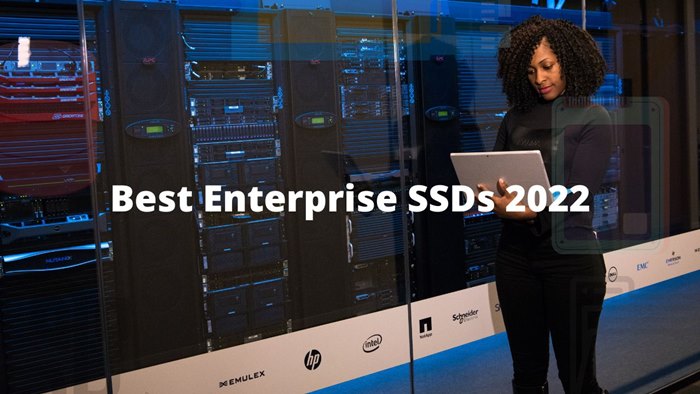
What Are Enterprise Solid State Drives?
The previous generations of hard drives used mechanical parts to write and read data. In comparison, SSDs only have a flash-based memory. Not only is the overall lifespan better, but it is also much faster and more reliable since it will not break down as much as a regular HDD.
One of the most critical applications of SSDs is their quick functioning due to short read-access times and high throughputs. While SSDs were launched in 2000, they are now gaining popularity since users now understand the better advantages it offers.
Why Choose Enterprise Solid State Drives?
- Durability
Heat is a significant factor that can cause HDDs to break down permanently over time. SSDs lack mechanical parts. So, excess heat is out of the question. Apart from a higher performance output, SSDs are also capable of withstanding wear and tear, drops and shocks, thus, reducing the chances of data loss.
- Speed
SSDs are hundreds of times quicker than HDDs. SSDs provide faster computer boot times, faster data transfer, and more bandwidth.
SSDs with faster speeds can handle data at ultra-high rates required in today’s corporate environment, particularly when running applications that access massive volumes of data, such as an operating system. Furthermore, SSDs are incredibly stable, ensuring the security of stored data.
- Efficiency
An SSD requires less electricity to run than an HDD with a magnetic spinning disc since it has no moving components. When it comes to PC and mobile devices, where battery endurance is a highly marketable and demanded feature, energy economy is a significant benefit of employing an SSD.
- Minimal noise
Because of their reduced size, SSDs weigh less than bigger HDDs with magnetic heads and metallic discs. SSDs are ideal for laptops, tablets, and other tiny electronic devices because of their small size. SSDs are much quieter than HDDs due to the lack of moving components, which can be quite distracting.
- Practicality
HDDs have been hampered by their bigger sizes since their introduction. SSDs, on the other hand, come in a range of sizes, ranging from the size of a stick of gum to 2.5 inches” form factor. Common SSD form factors include:
- The most prevalent form factor; that provides the greatest value per GB; is enclosed design.
- mSATA has a very compact form factor; a new connection method; a bare circuit board; and is ideal when space is limited.
- M.2 is a bare circuit board that is available in both SATA and PCIe NVMe configurations. It is around the size of a big eraser.
List of best enterprise SSDs 2023
1. Micron 5200 Series
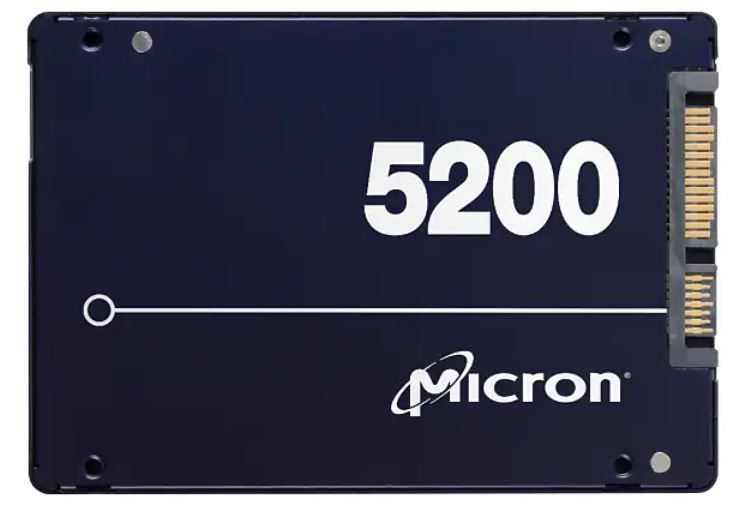
Although it may be pricey, the Micron 5200 Series is the top choice for enterprise environments. With the ability to store up to 1 TB of data, many organizations prefer this SSD. What’s more, it also consists of up to 2 million transistors on each side. This enables it to process heat efficiently with its thermal and power management properties.
The Micron 5200 series enterprise SSD has a 30-pin form factor enabling a more sturdy and durable insertion into motherboards. This device also connects to the drives using the most recent SATA technology.
There are three SSDs in Micron 5200 series i.e. 5200 ECO, 5200 PRO, and 5200 MAX. You can check all of them here.
2. Water Panther 1.6TB SAS
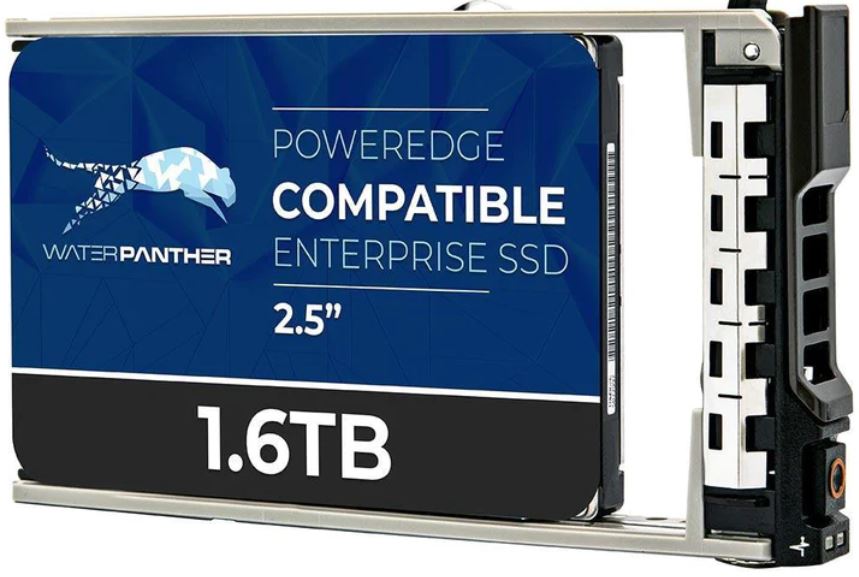
One of the top SSD available in a budget we can recommend is this SSD. It is slowly rising up the ranks since it is quite inexpensive for the quality it offers. With a 1.6 TB drive and a transfer speed of 560 MB/s, users can store ample information on this drive without having to purchase extra hard drives.
This drive will provide you with the necessary storage capacity to save the vast quantity of data that you will wish to move to another PC or laptop over time. This will allow you to get what you need to be done fast and efficiently, eliminating the need to wait for data to upload on your PC. You can check out more about this SSD right here.
3. Micron 5210 Ion
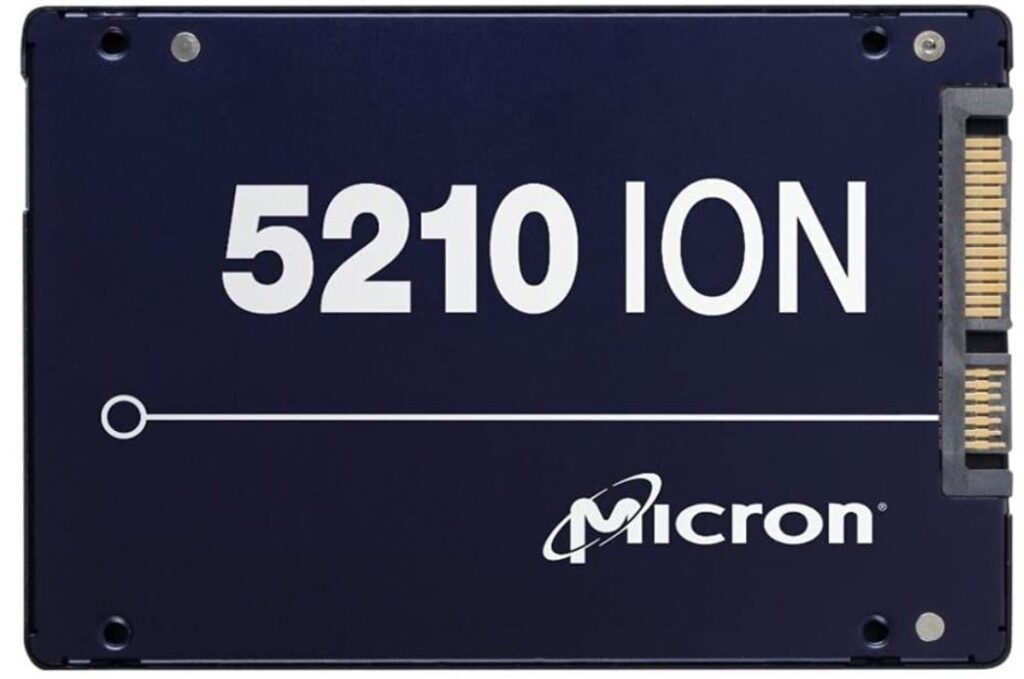
If storage and speed are both necessary to you, we suggest the Micron 5210 Ion. It boasts 8 TB storage, a 6 GB/s SATA interface, and a top speed of 540 MB/s. This SSD is designed to manage various processes and workloads simultaneously, such as real-time analytics, media streaming, image processing, etc.
The flash memory drive works efficiently with the latest computing tech such as computer memory, microprocessors, mainframe computers, ultra-dense main-system chips, and other high-throughput devices. Know more about this product here.
4. Intel SSDSC2KB019T701
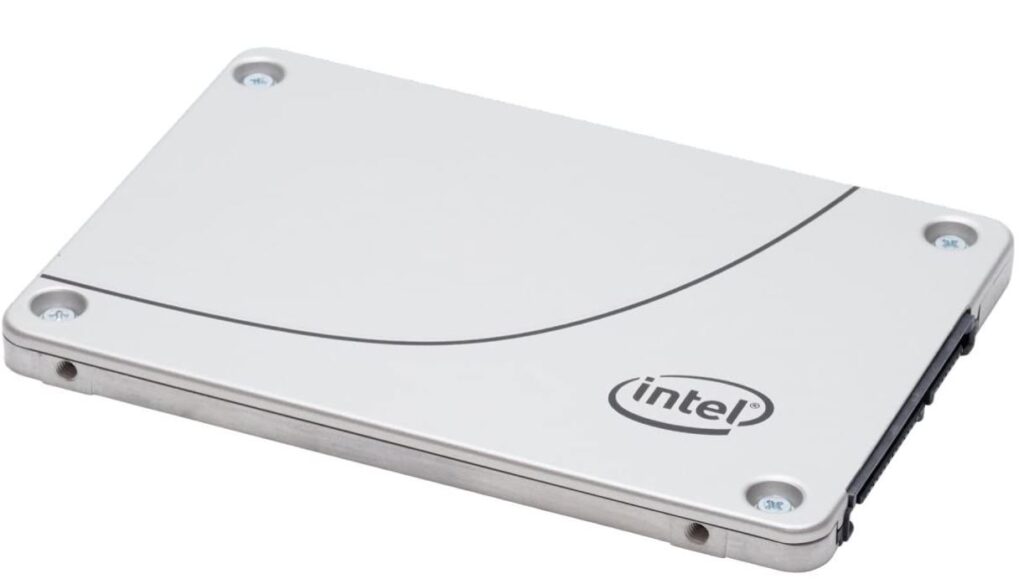
With a top transfer speed of 560 MB/s, 2 TB storage capacity, and a SATA interface of 6 GB/s, this is one of the best SSD available today. One of the most crucial characteristics of this Intel SSD is its ability to readily scale up.
In some of the most recent mobile client processor designs, the system may be expanded up to 10 gigabits per second at the corporate level. Because of their greater dependability and longevity, these SSDs are increasingly being used at the corporate level.
5. Samsung 883 DCT
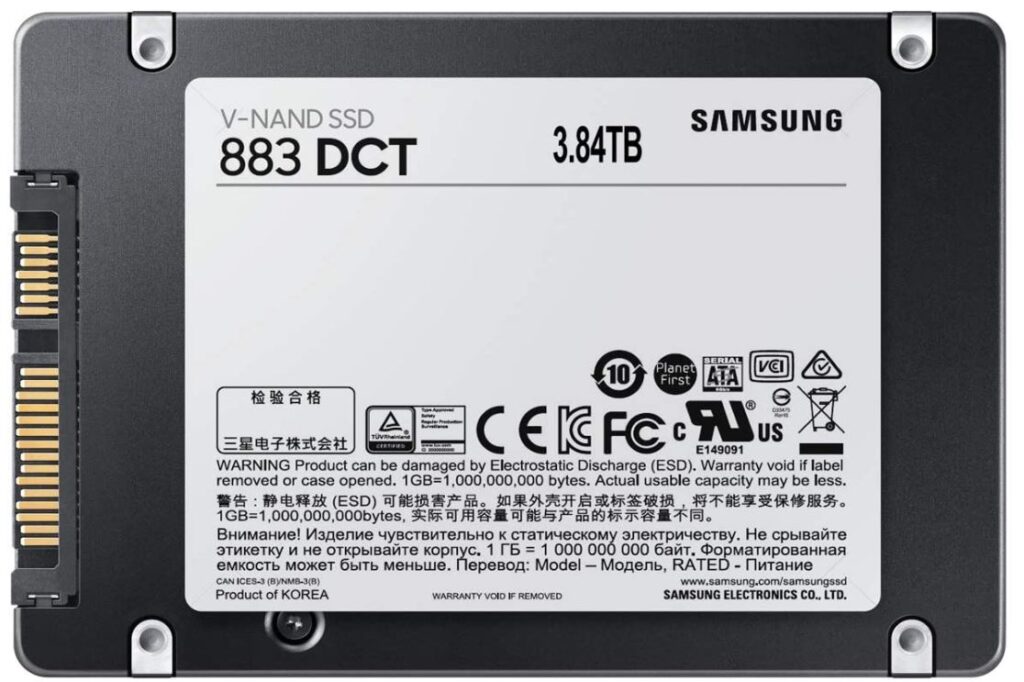
The Samsung 883 DCT SATA SSD is an excellent choice for corporate server storage solutions. It is fast and provides exceptional reliability and data protection for applications. This SATA system is a fantastic contender for good performance and ample storage. It features a 6 GB/s SATA interface and a storage capacity of up to 3.84 TB.
You can learn more about this SSD here.
6. Seagate Nytro Enterprise SSD
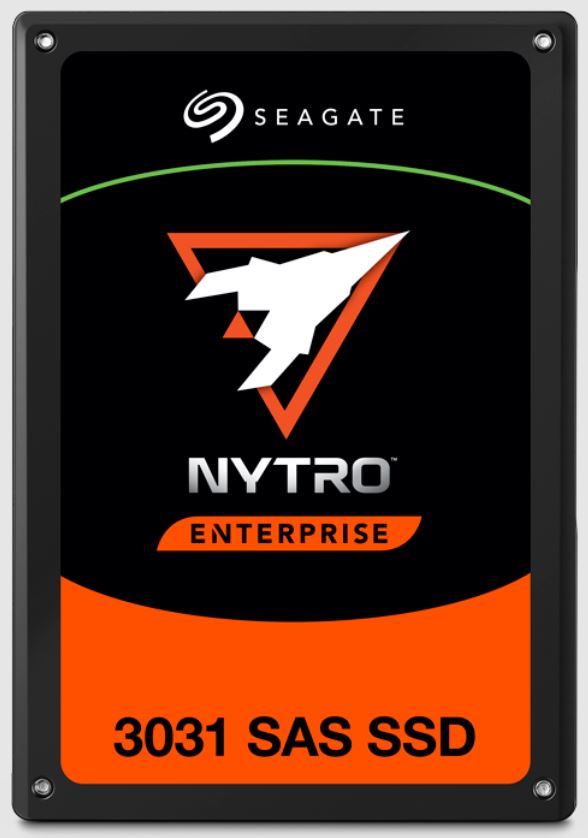
If you are looking for something that is both value for money with high performance, we recommend the Seagate Barracuda. This SSD is the perfect choice for home PCs and laptops. For best performance and compatibility, it has a decent SATA 6 GB/s interface.
The drive has 3D TLC NAND flash memory, which allows for sequential read and write rates of up to 560/540 MB/s. Its throughput outperforms the competition. However, with a maximum capacity of 2 TB, it is insufficient for business workloads. Check Seagate Nytro SSDs here.
Thanks for reading!